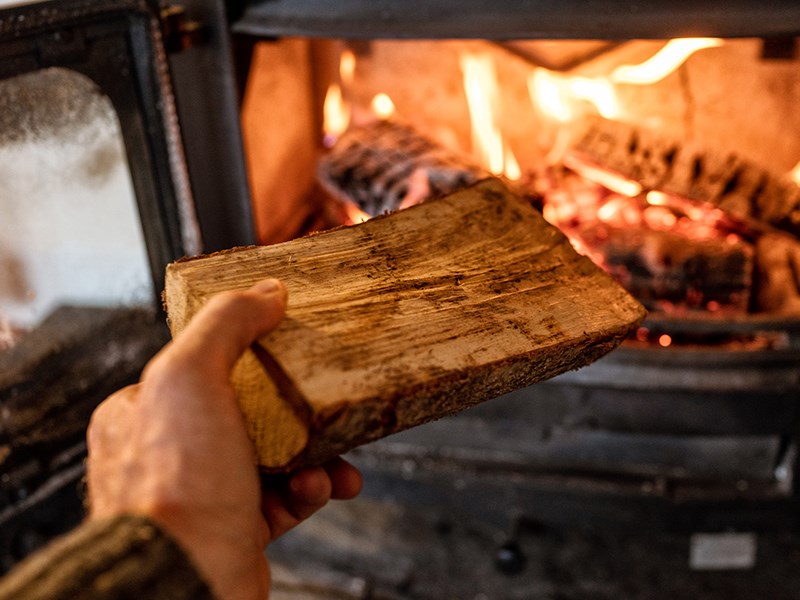qathet Regional District (qRD) staff will be looking into what the regional district’s options are regarding wood burning.
The discussion on wood burning began when Lorne Morrow, in a delegation at the August 26 qRD board meeting, said he wanted to address the board on the topic. He said he was very happy to hear that at the August 12 committee of the whole meeting, the board discussed having staff write a report on options regarding wood stoves and burning.
“While investigating, staff will clearly discover that many cities, towns and regional districts in BC have created bylaws that include things like no-burn days, not allowing wood appliances in new construction and the removal of non-compliant wood stoves,” said Morrow.
He outlined a report from the intergovernmental panel on climate change, comprised of governments and scientists from around the world. He said the main point in the report was the role of human influence on climate systems is undisputed.
“In other words, we are the problem,” said Morrow. “We must all take an active part in trying to reduce our negative impacts. As elected representatives, you obviously have the opportunity to lead on that.
“We’d like to address two main issues. Number one is, nothing burns cleanly. All combustion affects air quality. Number two is we need strong leadership because we cannot any longer accept the status quo. Burning pollutes and our society needs some guidelines.”
Morrow said air is a limited commodity and everyone has the right to breathe clean air, which is essential for good health. He added the pollutants and particulates in the air from smoke induce childhood asthma and puts people at greater risk from respiratory afflictions.
“Those who would choose to refute those points, if you want to test how cleanly a stove burns, light it in your house with the windows and doors closed and the chimney plugged,” said Morrow.
“We live in a province where more than 90 per cent of our electricity is from sustainable hydro. You can operate your baseboards or an electric heat pump all day with your doors and windows closed with no risk to your interior.”
Morrow said he had a woodstove for years.
“It was really nice but it’s time to adapt,” said Morrow. “We have to think about what is best for the common good. We have obviously reached a point where we need to think about our planet’s future and the future of our children.
“Carbon dioxide is the main driver of climate change. Carbon dioxide is a main constituent of wood smoke. On top of that, the particulate in wood smoke contributes to multiple adverse health effects.”
Morrow said he was looking for solutions, not a fight with regional directors.
“We are asking for action to be taken by qathet [Regional District] to regulate burning further,” said Morrow.
He said qRD actions include education being done by Let’s Talk Trash and the regional district’s wood stove replacement program. He said he’s heard that regulations are not within the regional district’s jurisdiction and that more regulations would not be supported by the electorate.
“What you do have is the power to create local bylaws that will influence people to burn less, be it stoves or open burning,” said Morrow. “Keep our air cleaner.”
Electoral Area E director Andrew Fall said the issue of climate change is hugely important, and that finding solutions is important. He said there is a Vancouver Island and coastal communities climate leadership plan committee, which is a collaboration of local governments and some researchers at the University of Victoria. There is a draft report that includes action items for local governments, he said.
Fall added that Lasqueti Island, which he represents, is almost entirely heated by wood.
“In off-grid places, it would be challenging [not to heat with wood], but it’s worthy of conversation and education is hugely important for this,” said Fall.
Later in the board meeting, directors considered a motion that staff write a report on what the regional district’s options are with regards to regulating wood burning. The board considered an amendment, adding wood smoke regulations to the motion, but the amendment failed. The board then carried the motion for staff to write a report on what the regional district’s options are on regulating wood burning.



